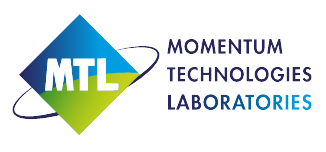
Standards as Part of the Business Model
Momentum Technologies Laboratories, formerly Momentum Technologies International, is a third-party laboratory that is accredited by A2LA to ISO 17025, general requirements for the competence of testing and calibration laboratories. Founded in 1996 to support the sales of synthetic polymer, MT Labs grew to support their customers as a third-party laboratory specializing in the testing of roofing, asphalt, and coatings. In January 2018, Momentum Technologies was bought by Halcyon Agri Corp. Ltd. and became Momentum Technologies Laboratories, a separate business under Halcyon Agri and Corrie MacColl. At that time, MT Labs expanded to natural latex and natural rubber testing with a newly renovated lab.
Using ASTM Standards
We are accredited for over 100 different ASTM International standards with six technicians trained in each of those standards. Using ASTM standards is at the core of our business model, as we participate in the committees on road and paving materials (D04), roofing and waterproofing (D08), and rubber and rubber-like materials (D11).
Being a part of ASTM International helps us network and support our customers while also providing input to improve new and existing standards. We have also been involved with multiple interlaboratory studies, which assist in developing precision and bias statements.
We also believe in reducing the amount of waste and reusing materials. We believe in developing innovative ways to use materials in other useful products, for example, petroleum-based waste products such as plastics and similar types of polymer materials. We have successfully incorporated these types of materials into asphalt-based products such as hot-applied crack fillers, roofing adhesives, road and paving binders, and liquid coatings.
Using specific ASTM standards such as the standard specification for joint and crack sealants, hot applied, for concrete and asphalt pavements (D6690) has helped guide us in doing studies that compare commonly used polymers such as SBS and SBR [poly(styrene-butadiene-styrene) and styrene butadiene rubber] versus recycled materials. In many cases, these studies have led to improvements in the physical properties of the end product by either completely eliminating the polymer or by substituting some of the polymers with the recycled materials.
The studies have also shown improved softening point per the test method for softening point of bitumen (ring-and-ball apparatus) (D36); improved penetration per the test method for penetration of bituminous materials (D5); and in some cases, lower viscosity per the test method for viscosity determination of asphalt at elevated temperatures using a rotational viscometer (D4402) for ease of pumping and handling. These studies have helped our customers create more efficient and sustainable products while lowering overall production costs.
Standards Spur Product Development
We also have a newly renovated, state-of-the-art natural latex and natural rubber laboratory that supports our sister company’s distribution of latex and rubber as well as providing certificates of analysis. The standard specification for rubber — concentrated, ammonia preserved, creamed, and centrifuged natural latex (D1076), has helped our team of companies compare, analyze, and technically support the product they sell.
ASTM International helps us to support our customers, as well as assist in developing innovative products to promote a better solution for the overabundance of waste materials.
Company Snapshot
- Momentum Technologies Laboratories, Uniontown, Ohio
- Facility offering construction materials, natural latex, and natural rubber testing
- Total number of staff: 7
- Number of staff who are ASTM members: 3
 SN Home
SN Home Archive
Archive Advertisers
Advertisers Masthead
Masthead RateCard
RateCard Subscribe
Subscribe Email Editor
Email Editor